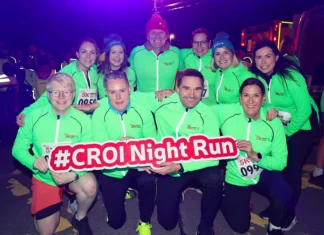Researchers from NUI Galway’s Centre for Chromosome Biology has uncovered new insights into male fertility by studying cell activity in the common fruit fly.
Dr. Elaine Dunleavy at NUIG is the lead author of a study that has found new links between genes normally responsible for energy production, and male fertility.
The study found a link between proteins in the cell that have traditionally been considered solely responsible for producing energy, and the creation of sperm.
The study was carried out on the fruit fly, and while that may seem on the surface like it has no bearings on humans, we share approximately 60% of the same genes, making the fruit fly an excellent proxy to study gene functions.
“Our use of the fruit fly allowed us to carry out genetic experiments that would have been very difficult to perform in humans.” said Dr. Dunleavy.
In the cell, energy production is carried in a compartment called the mitochondrion (as anyone who took biology no doubt found themselves repeating robotically as they read this), while DNA is stored separately in the cell nucleus.
Those experiments found that fruit flies lacking these energy producing proteins were unable to get their DNA to produce sperm.
These findings could be highly relevant to further studies of human sperm development and fertility, and how influencing this pathway might benefit people with fertility problems.
Professor Noel Lowndes, Director of the Centre for Chromosome Biology at NUIG, praised the work of their newest recruit.
“In the Centre we take advantage of simple cellular systems to discover new biology of relevance to humans and, in this case, the work of Elaine and her team will have impact in the field of human fertility.”
The findings of the study were published this week in renowned scientific journal Nature Communications.
Dr. Dunleavy’s research uses fruit flies as a way to understand the cell division that creates eggs and sperm to better understand human health issues.
Through it, she aims to discover the genes that are important for fertility in men and women.













